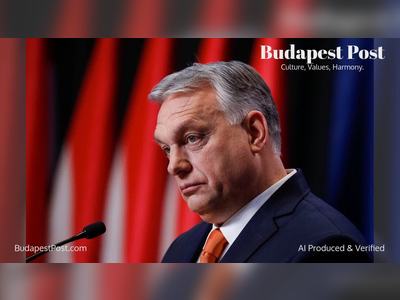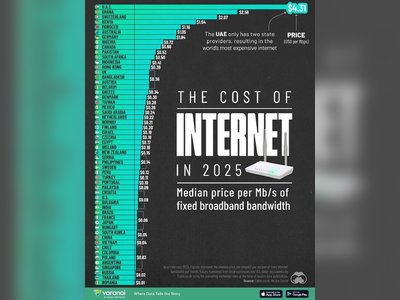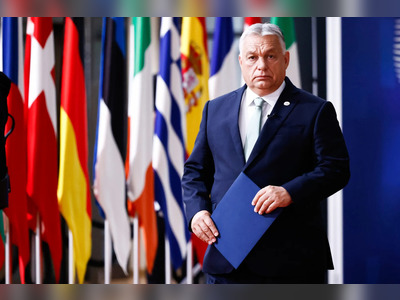
Hungary Faces Challenges Over EU Funding Amid Political Tensions
The Hungarian government's ongoing conflict with EU institutions raises concerns over development funding for the 2021-2027 programming cycle.
Hungary's ongoing tensions with European Union institutions have implications for the disbursement of EU development funds slated for the 2021-2027 programming period.
The European Commission and the European Parliament have expressed concerns that new funding conditions could be imposed, linking support to the Hungarian government's commitment to transparency in public administration.
Recent developments indicate that a legislative proposal on transparency, deemed inconsistent with EU principles and regulations, has drawn significant scrutiny.
During the 2014-2020 financial cycle, Hungary managed a budget of €32.09 billion, of which €27.15 billion was provided by EU institutions, supplemented by a national contribution of €4.94 billion.
Hungary benefited from European Structural and Investment Funds across nine programs, predominantly from the Cohesion Policy, which contributed €22.5 billion of the total funding.
As the previous funding cycle concluded, Hungary's performance was promising, with the European Commission's database reporting a nearly 100% drawdown rate, specifically 98.9%, in line with other EU member states' practices in development policy.
However, the prospects for the current 2021-2027 programming cycle appear less optimistic, influenced by the growing rift between Budapest and Brussels over the transparency legislation.
For the current seven-year cycle, the entire EU budget for cohesion policy is projected to exceed €526 billion, with Poland receiving the largest allocation of more than €92 billion, followed by Italy (€73.8 billion), Spain (€51.6 billion), Romania (€44.4 billion), and Germany (€38.8 billion).
Hungary ranks ninth nominally among the 27 EU member states with a budget of €26.13 billion, with €21.73 billion sourced from EU institutions and €4.4 billion from national co-financing.
Despite the tensions, Hungary has received limited disbursements, with the total drawn down from EU funds rising from €1.837 billion in December 2024 to €2.011 billion as of May 2025, resulting in a slight increase in the utilization rate from 8.4% to 9.1%.
Approximately 2.5% of the total funding has been received as advances, while remaining payments are based on project invoices.
In a comparative analysis, Hungary's performance sits at approximately 9.1%, placing it 16th among the 27 EU member states.
Countries performing worse include Malta (2.9%), Spain (3.4%), and Croatia (4.3%).
Luxembourg leads with 21.2%, followed by Denmark (19.3%) and Finland (19%).
Despite the economic concerns regarding Hungary's funding prospects, the average EU utilization rate mirrors Hungary's performance at 9.2%, although future projections remain uncertain.
Among Visegrád Group nations, the Czech Republic has notably utilized 17.2% of its 2021-2027 allocation, with Slovakia slightly ahead of Hungary at 9.2%, while Poland lags at 8.9%.
Additionally, Romania reports a utilization rate of 9.8%, Bulgaria at 9.6%, and Slovenia at 7.6%.
Economic impacts are visible, as Hungary’s central government closed the books on April with a deficit of HUF 2930.5 billion, with specific shortfalls in central budget (HUF 2851.5 billion) and social insurance funds (HUF 123 billion).
The forint experienced volatility following U.S. President Donald Trump's announcement of potential tariffs on the European Union, with the exchange rate shifting from HUF 402.7 to HUF 403.8 against the euro, and from HUF 354.2 to HUF 357.1 against the dollar.
Concerns are mounting that upcoming government spending ahead of elections—tied to the usual cycle of fiscal stimulus—may exacerbate Hungary's fiscal vulnerabilities.
Experts caution that such expenditure, if mismanaged in a fragile economic landscape, could lead to significant economic setbacks.
Former central bank governor György Surányi emphasized the importance of maintaining the forint's stability and warned against the detrimental effects of a weakening currency on inflation and investor confidence.
The central bank’s stance has evolved, with current leadership acknowledging the need for a stable exchange rate as pivotal for maintaining economic stability.
The ongoing situation signifies a complex interplay between Hungary's internal politics and its economic relations with the EU, which are crucial for the nation's development funding and overall economic health.
The European Commission and the European Parliament have expressed concerns that new funding conditions could be imposed, linking support to the Hungarian government's commitment to transparency in public administration.
Recent developments indicate that a legislative proposal on transparency, deemed inconsistent with EU principles and regulations, has drawn significant scrutiny.
During the 2014-2020 financial cycle, Hungary managed a budget of €32.09 billion, of which €27.15 billion was provided by EU institutions, supplemented by a national contribution of €4.94 billion.
Hungary benefited from European Structural and Investment Funds across nine programs, predominantly from the Cohesion Policy, which contributed €22.5 billion of the total funding.
As the previous funding cycle concluded, Hungary's performance was promising, with the European Commission's database reporting a nearly 100% drawdown rate, specifically 98.9%, in line with other EU member states' practices in development policy.
However, the prospects for the current 2021-2027 programming cycle appear less optimistic, influenced by the growing rift between Budapest and Brussels over the transparency legislation.
For the current seven-year cycle, the entire EU budget for cohesion policy is projected to exceed €526 billion, with Poland receiving the largest allocation of more than €92 billion, followed by Italy (€73.8 billion), Spain (€51.6 billion), Romania (€44.4 billion), and Germany (€38.8 billion).
Hungary ranks ninth nominally among the 27 EU member states with a budget of €26.13 billion, with €21.73 billion sourced from EU institutions and €4.4 billion from national co-financing.
Despite the tensions, Hungary has received limited disbursements, with the total drawn down from EU funds rising from €1.837 billion in December 2024 to €2.011 billion as of May 2025, resulting in a slight increase in the utilization rate from 8.4% to 9.1%.
Approximately 2.5% of the total funding has been received as advances, while remaining payments are based on project invoices.
In a comparative analysis, Hungary's performance sits at approximately 9.1%, placing it 16th among the 27 EU member states.
Countries performing worse include Malta (2.9%), Spain (3.4%), and Croatia (4.3%).
Luxembourg leads with 21.2%, followed by Denmark (19.3%) and Finland (19%).
Despite the economic concerns regarding Hungary's funding prospects, the average EU utilization rate mirrors Hungary's performance at 9.2%, although future projections remain uncertain.
Among Visegrád Group nations, the Czech Republic has notably utilized 17.2% of its 2021-2027 allocation, with Slovakia slightly ahead of Hungary at 9.2%, while Poland lags at 8.9%.
Additionally, Romania reports a utilization rate of 9.8%, Bulgaria at 9.6%, and Slovenia at 7.6%.
Economic impacts are visible, as Hungary’s central government closed the books on April with a deficit of HUF 2930.5 billion, with specific shortfalls in central budget (HUF 2851.5 billion) and social insurance funds (HUF 123 billion).
The forint experienced volatility following U.S. President Donald Trump's announcement of potential tariffs on the European Union, with the exchange rate shifting from HUF 402.7 to HUF 403.8 against the euro, and from HUF 354.2 to HUF 357.1 against the dollar.
Concerns are mounting that upcoming government spending ahead of elections—tied to the usual cycle of fiscal stimulus—may exacerbate Hungary's fiscal vulnerabilities.
Experts caution that such expenditure, if mismanaged in a fragile economic landscape, could lead to significant economic setbacks.
Former central bank governor György Surányi emphasized the importance of maintaining the forint's stability and warned against the detrimental effects of a weakening currency on inflation and investor confidence.
The central bank’s stance has evolved, with current leadership acknowledging the need for a stable exchange rate as pivotal for maintaining economic stability.
The ongoing situation signifies a complex interplay between Hungary's internal politics and its economic relations with the EU, which are crucial for the nation's development funding and overall economic health.
AI Disclaimer: An advanced artificial intelligence (AI) system generated the content of this page on its own. This innovative technology conducts extensive research from a variety of reliable sources, performs rigorous fact-checking and verification, cleans up and balances biased or manipulated content, and presents a minimal factual summary that is just enough yet essential for you to function as an informed and educated citizen. Please keep in mind, however, that this system is an evolving technology, and as a result, the article may contain accidental inaccuracies or errors. We urge you to help us improve our site by reporting any inaccuracies you find using the "Contact Us" link at the bottom of this page. Your helpful feedback helps us improve our system and deliver more precise content. When you find an article of interest here, please look for the full and extensive coverage of this topic in traditional news sources, as they are written by professional journalists that we try to support, not replace. We appreciate your understanding and assistance.











